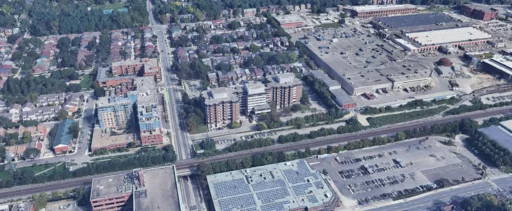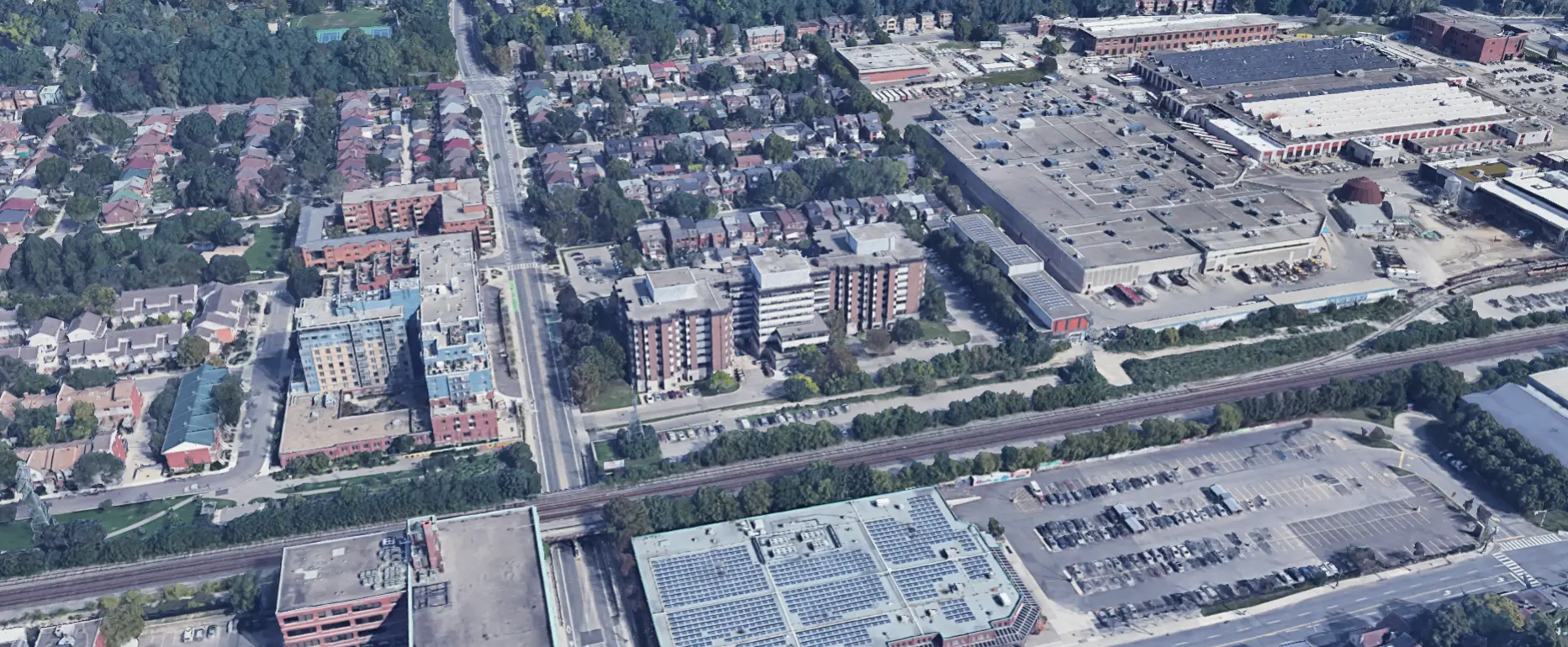Castleview Wychwood Towers (351 Christie Street, Toronto) is owned and operated by the City of Toronto. There are approximately 460 beds.
In this article, our Good Caring Canada team has reviewed Castleview Wychwood Towers from three essential angles: inspection reports, performance indicators, and resident profiles. You are encouraged to thoroughly review all three angles so you can be more informed about the quality and safety of Castleview Wychwood Towers.
Table of Contents:
- Inspection Reports for Castleview Wychwood Towers
- Performance Indicators for Castleview Wychwood Towers
- Resident Profile of Castleview Wychwood Towers
Inspection Reports for Castleview Wychwood Towers
Our research team carefully reviewed and summarized inspection reports for Castleview Wychwood Towers. You can read the original copies of the reports in the Government of Ontario website.
🔍 June 2023
There were no findings of non-compliance for Castleview Wychwood Towers.
🔍 May 2023
An inspection was conducted under the leadership of Lead Inspector Manish Patel and Additional Inspector Oraldeen Brown.
The inspection spanned from April 17 to 27, 2023, with both onsite and offsite components. The primary focus was to address specific intakes related to various aspects of resident care, including infection prevention and control (IPAC) practices, neglect, falls prevention, continence care, and overall safety and security.
- Inadequate Techniques for Assisting Residents with Eating: A resident was found sitting unsafely while eating, contrary to the required safety standards. This was rectified immediately by staff upon being pointed out by the inspector.
- Poor Maintenance of the Facility: Strong sewer-like odors were detected in various areas of the home, including the ground floor servery and main floor lobby. The situation indicated inadequate management of the home’s environment. There were also observations of damaged surfaces like walls and floors, particularly in washrooms and resident rooms, indicating a lack of proper maintenance.
- Inconsistent Infection Prevention and Control (IPAC) Practices: A staff member was observed not adhering to mandatory indoor masking guidelines, which is a key component of IPAC measures.
As such, the following written notifications were issued to Castleview Wychwood Towers:
- Specific Duties Regarding Cleanliness and Repair: This notification was issued due to the failure in maintaining the home in a safe condition and good state of repair, as evidenced by the persistent odors and damaged facility surfaces.
- Dining And Snack Services: Castleview Wychwood Towers was cited for not using proper techniques to assist a resident post-eating, including ensuring safe sitting positions.
- Infection Prevention and Control Program: The notification highlighted the failure in ensuring that all staff, including leadership team members, adhere to the IPAC program, especially regarding indoor masking.
- Dealing With Complaints: These notifications addressed the inadequacy in the facility’s response to complaints, specifically the omission of vital information such as the Ministry’s toll-free number and the requirement to forward complaints to the Director.
- Reports Regarding Critical Incidents: This was issued due to the delayed reporting of an outbreak of a disease of public health significance to the Director, highlighting a lapse in critical incident communication.
🔍 April 2023
In a recent inspection, various non-compliance issues were identified, leading to the issuance of multiple written notifications.
The inspection, which was a mix of proactive compliance and response to specific complaints and critical incidents, took place from March 20 to 30, 2023.
- Unsecured Non-Residential Areas: Doors to two non-residential areas were found unlocked and unsupervised. The issue was resolved during the inspection, with staff locking the doors immediately.
- Visitor Policy Not Displayed: The current visitor policy was not posted within the home. The policy was displayed in front of the main dining area on the main floor by the end of the inspection.
- Inadequate Care as Per Plan: A resident’s plan of care, requiring two-person assist for transfers and toileting, was not followed. A written notification was issued to address the deviation from the prescribed care plan.
- Doors to Restricted Areas Left Unlocked: Doors to areas with potentially hazardous materials were left unlocked. A written notification was issued due to the increased risk to residents from unsecured areas.
- Window Safety: A resident room window could open more than the permissible limit. A written notification was issued to address this safety hazard.
- Inconsistent Snack Service: Planned menu items were not offered at snack time as per the menu. A written notification was issued to ensure adherence to the planned menu.
- Failure in Infection Prevention: Non-compliance with routine precautions, specifically hand hygiene, was noted. A written notification was issued for not following the Infection Prevention and Control Standard.
- Delayed Reporting of COVID-19 Outbreak: There was delay in reporting a new COVID-19 outbreak to the Director. A written notification was issued due to the failure in timely communication of a significant public health issue.
- Unsafe Drug Storage: Controlled substances were not stored securely in the medication cart. Issued to address potential risks associated with improper drug storage.
🔍 October 2022
The inspection, which took place from September 29 to October 14, 2022, focused on various critical aspects of care, including falls prevention and management, infection prevention and control (IPAC), and prevention of abuse and neglect. The issues identified led to the issuance of written notifications.
- Failure to Follow Ministerial Operational or Policy Directives: Castleview Wychwood Towers did not adhere to COVID-19 response measures, including conducting regular IPAC audits and ensuring mandatory masking. This lapse in compliance posed a heightened risk of infection transmission.
- Inadequate Plan of Care for Responsive Behaviours: The home failed to manage resident #001’s mood and behaviour patterns effectively, leading to physical and verbal altercations with another resident. This oversight necessitated a written notification due to the inadequate response to and documentation of these behaviours.
- Duty to Protect Residents from Abuse: The home was unable to protect resident #002 from abuse by resident #001, leading to a notification for failing to ensure resident safety and prevent abuse.
- Failure to Minimize the Risk of Altercations Between Residents: Castleview Wychwood Towers did not take sufficient steps to prevent harmful interactions between two residents, highlighting the need for more effective interventions to prevent altercations.
- Delay in Reporting Critical Incidents: Castleview Wychwood Towers was late in reporting a communicable disease outbreak, prompting a notification for not informing the Director promptly about a significant public health outbreak.
- Delay in Plan of Care Review and Revision: Castleview Wychwood Towers did not timely update a resident’s plan of care with recommended fall prevention strategies by an Occupational Therapist, increasing the risk of falls.
- Non-Adherence to Specified Care in the Plan of Care: Care as specified in a resident’s plan for fall prevention was not provided, leading to a notification for failing to follow the prescribed care plan.
- Inadequate Reassessment and Revision of Care Plan: Castleview Wychwood Towers failed to reassess and revise the care plan for a resident with a history of falls in a timely manner, necessitating a notification for not implementing recommended interventions promptly.
🔍 January 2022
During the complaint inspection, various non-compliance issues were identified. This inspection, which occurred between September 24 and October 8, 2021, included comprehensive assessments and discussions with the facility’s staff and residents.
- Non-Compliance with the Plan of Care: Castleview Wychwood Towers failed to ensure collaborative and consistent assessments among staff for a resident’s care. Although several risk factors for injury were noted upon admission, observed risks in the resident’s room contradicted their care plan. The resident’s condition had changed, necessitating a reassessment and modification of the care plan, which was not done promptly. A written notification (WN #1) was issued for this non-compliance, and a voluntary plan of correction (VPC) was requested.
- Administration of Drugs: Castleview Wychwood Towers did not ensure that all drugs administered to a resident were prescribed. An inspection revealed that a resident was self-administering medications that were not part of the prescribed treatment. This oversight led to the issuance of a written notification (WN #2), and a VPC was requested to address this issue.
- Infection Prevention and Control Program: The inspection found that a staff member failed to implement the infection prevention and control (IPAC) program effectively, specifically not cleaning frequently touched surfaces daily as required. This failure led to the issuance of a written notification (WN #3) and a request for a VPC to ensure staff participation in the IPAC program.
🔍 July 2021
In the first of two inspections, several non-compliance issues were identified. The first inspection is a Critical Incident System inspection, conducted from June 16 to June 29.
- Non-Compliance with Air Temperature Regulations: Castleview Wychwood Towers did not consistently measure and document the temperature in one resident common area on every floor of the home, as required by regulations. This oversight was acknowledged by the Building Service Manager and resulted in the issuance of a written notification (WN #1) and a request for a voluntary plan of correction (VPC).
- Failure to Report Critical Incidents: Castleview Wychwood Towers did not immediately report to the Director incidents involving residents missing for more than three hours or a missing resident returning with an injury, as mandated. The incidents were reported after significant delays, leading to the issuance of a written notification (WN #2) and a request for a VPC.
- Infection Prevention and Control Program Non-Compliance: Staff and essential visitors did not consistently use face shields within 2 meters of residents, contrary to infection prevention and control program requirements. This failure to comply with the Directive #3 for Long-Term Care Homes resulted in a written notification (WN #3) and a request for a VPC.
In the second of two inspections, Non-Compliances were not issued.
Performance Indicators for Castleview Wychwood Towers
Our research team at Good Caring Canada has compiled data on seven key performance indicators for long-term care facilities in Ontario.
We invite you to review each of the below indicators — to compare Castleview Wychwood Towers with other long-term care facilities in Ontario.
- 💊 Potential misuse of antipsychotics is measured by the percentage of residents taking antipsychotic drugs, without a diagnosis of psychosis
- 🔒 Potential excessive use of physical restraints is measured by the percentage of residents in daily physical restraints
- 🤕 Fall risk is measured by the percentage of residents who fell in the 30 days leading up to the date of their quarterly clinical assessment
- 🦽 Worsened physical functioning is measured by the percentage of residents who worsened or remained dependent in transferring and locomotion (mid-loss ADLs), less residents who improved or remained independent
- 🩹 Worsened pressure ulcers is measured by the percentage of residents whose stage 2 to 4 pressure ulcer worsened since the previous assessment
- 😣 Pain is measured by the percentage of residents who report to have moderate daily pain or horrible/excruciating pain at any frequency
- ☹️ Worsened depressive mood is measured by the percentage of residents whose mood from symptoms of depression worsened
Resident Profile of Castleview Wychwood Towers
Understanding the resident profile of a long-term care facility can help you assess the facility’s appropriateness and compatibility for a patient. Our research team at Good Caring Canada compiled data on three main elements to understand resident profiles. We invite you to review each of the three below elements.
- 👵🏻 Gender profile can be helpful for assessing the gender compatibility of a long-term care facility.
- 👴🏻 Age profile can be helpful for assessing whether a long-term care facility has experience in caring for residents of specific age groups. More residents of advanced age may imply potential challenges to adequate and equitable care for all residents in the facility.
- 💭 The percentage of residents with dementia can be helpful for assessing whether a long-term care facility is aware and ready for dementia care. A higher percentage may imply more relevant care services. A higher percentage may also imply potential challenges to adequate and equitable care for all residents in the facility.

